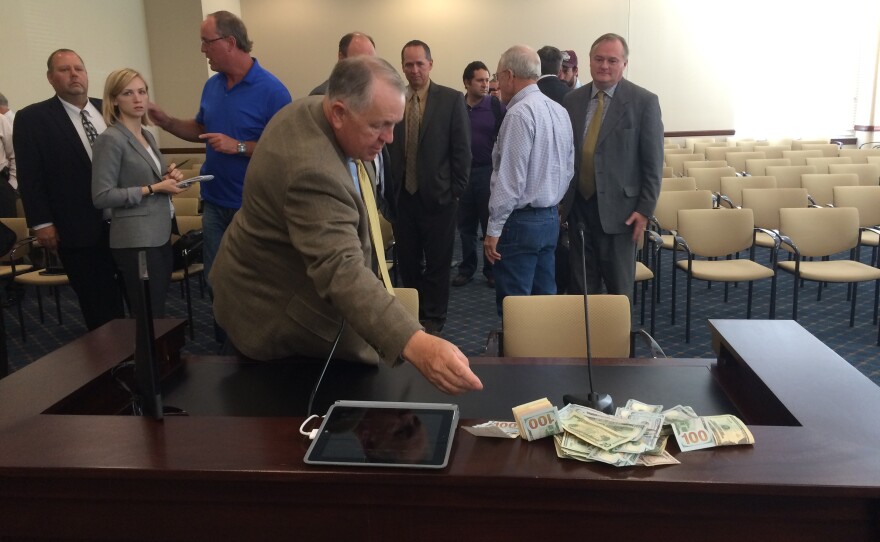State leaders are following through with their recent promise to back up San Juan County Commissioner Phil Lyman.
Lyman’s awaiting sentencing on trespass and conspiracy charges for a protest ride he led last year. He’s always contended the U.S. Bureau of Land Management had no right to close the trail down Recapture Canyon and argues he broke no laws by leading dozens of all-terrain vehicles into the archaeologically rich canyon.
Now the state lands office is making a similar argument in threatening legal action against the federal government. Attorney Mark Ward follows the controversy over so-called RS2477 roads for the Utah Association of Counties
“If the 2477 right-of-way was there,” he says, “I think it’s not rocket science that Phil’s ride was not trespass.”
Ward says it’s not the commissioner’s defense driving the state’s latest move. It’s frustration.
“The county’s just trying to get the darn road open,” he says.
Basically, the state’s demanding that the nine-mile dirt track be added to thousands of miles of other backcountry “roads” that are integral to rural life, in the state and county’s view, and outside federal control.
Joe Bushyhead, a lawyer with the Southern Utah Wilderness Alliance, doubts the logic behind adding Recapture Canyon now to a decades-old list.
“This really seems like more of an effort to appease the fringes of the Sagebrush Rebellion,” he says, “than it is to claim a highway as part of a well thought-out highway system.”
In a separate move last week, Lyman’s attorneys filed papers in federal court to remove the judge who presided over the commissioner’s criminal case. They argue that Judge Robert J. Shelby is personal friends with another SUWA attorney.







